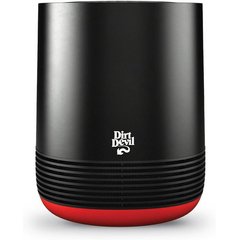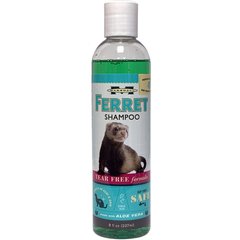Dogs and Gunpowder: Knowing the Dangers
By Aly Semigran
Whether you take your dog hunting with you, or plan to have him in the vicinity of any holiday festivities that involve fireworks (be it your own backyard, or in a public setting), it’s important to understand the risks that gunpowder poses to canines.
What is Gunpowder?
“Most gunpowder is made of a few ingredients: potassium nitrate (saltpeter), carbon, and sulfur. If the source is fireworks, the powder may also include chlorates, aluminum, copper, and soluble barium salt,” relays Dr. Lindy West, DVM, of West River Veterinary Clinic.
Recommended Products
Is Gunpowder Harmful To Dogs?
If a dog ingests gunpowder from guns and/or fireworks, it can make him ill.
“In most cases, we see vomiting and diarrhea,” says Dr. Charlotte Means, the director of toxicology for the ASPCA’s Animal Poison Control Center. The potassium nitrate ingredient in gunpowder is what causes these abdominal issues.
While ingestion is unlikely to be lethal, it can cause problems such as low blood pressure. Ingestion of a large amount of gunpowder may also cause methemoglobinemia in dogs, a condition where the blood is oxidized so it can’t carry oxygen well.
If you’re dog is vomiting, it’s possible that he could have consumed a shell casing, which could cause blockages or other internal complications. Make sure to visit a vet if your dog is vomiting and you think gunpowder or shell casings may be to blame.
What Should You Do If Your Dog Ingests Gunpowder?
Dogs will likely vomit up the gunpowder they’ve ingested, which, as Means notes, works as “self-decontamination.”
Still, if your dog has ingested gunpowder, be it from a gun casing or a firework, West urges calling a veterinarian for support and care.
Keeping Your Dog Safe Around Gunpowder
“When shooting off fireworks, keep pets far away or in the house,” West says. “If you find any fireworks or ammunition within reach of your pet, whether it's while you're out for a walk or in the house, pick it up and place it in the trash.”
Means also points out that illegal fireworks are likely to have larger quantities of gunpowder in them and dogs should be kept away from them.
Both Means and West urge pet parents to keep dogs away from firework shows, and Means points out that owners should still be on the lookout for leftover fireworks, even after the display is over. For instance, if municipal fireworks are set off at a local park, she advises not walking the dog in the area shortly afterwards.
“The dog could accidentally ingest [the ashes] the next day when people are walking them where the fireworks display was,” Means warns, adding that the barium salts which are used to make colors in fireworks can cause a life-threatening situation if ingested.
“We can see vomiting, diarrhea, drooling, a slow heart rate, muscle weakness that can develop to paralysis, high blood pressure, abnormal heart rhythms, and shock,” she explains.
If you do happen to walk with your dog in an area where fireworks were set off, wipe his paws with a baby wipe or a wet rag to remove any traces of potential gunpowder.
Debunking A Dangerous Myth About Dogs and Gunpowder
If you perform a Google search for “dogs and gunpowder” one of the top results you’ll come across is a theory that if you feed the powder to dogs, they’ll become more aggressive as a fighting and/or guard dog.
It should go without saying that this is not only a harmful myth, but one that should never be tested out on any dog, as evident by the health risks involved, as well as the cruelty factor.
This practice is staunchly discouraged by the National Shooting Sports Foundation, and as member Mike Bazinet blatantly states, “No one in their right mind would feed gunpowder to a dog or any other living thing. Period.”
Image: heidi birch photos via Shutterstock




